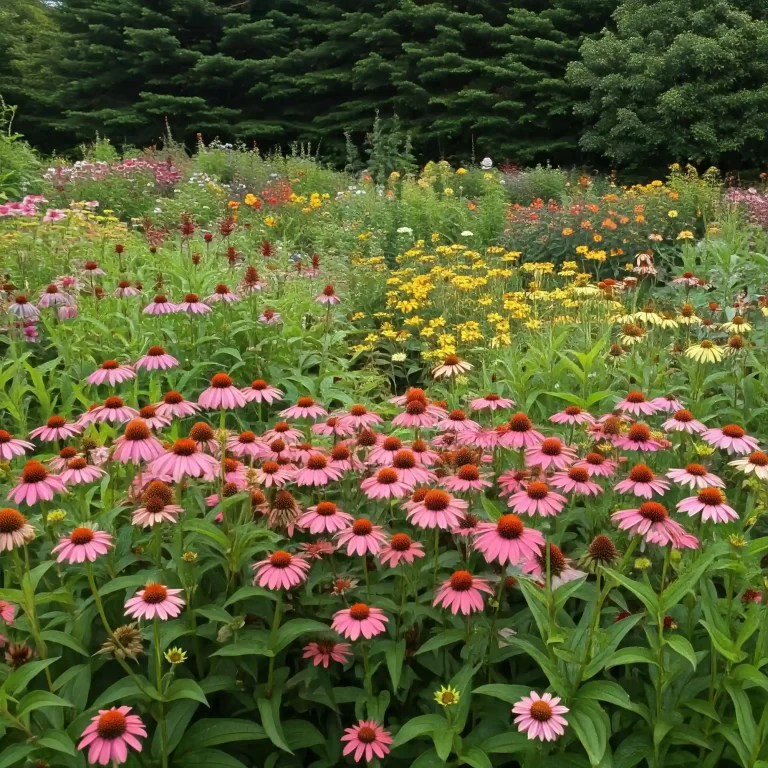Key Takeaways:
- Keep your balcony, container garden, or urban plot thriving with natural pest control methods!
- Organic solutions are safe for people, pets, and beneficial insects.
- Learn to identify common pests and choose the right organic weapon for the job.
- Preventative measures keep critters at bay from the get-go.
Havin’ a Bug Bite of a Problem? Tame Those Tiny Terrors in Your Tiny Garden
City slickers and balcony dwellers, rejoice! You don’t need a sprawling farm to cultivate a vibrant oasis. But even the most charming container garden can become a battleground for unwanted guests – those six-legged (or eight-legged) freeloaders we call pests. Fear not, fellow farmers! This guide will equip you with organic pest control methods to keep your little plot flourishin’ without resorting to harsh chemicals.
Why Organic Matters in Tight Spaces
Chemical sprays might seem like a quick fix, but in confined spaces like balconies and containers, they pose a bigger threat. Those fumes can linger, creating an unhealthy environment for you, your pets, and the beneficial insects that actually help your garden thrive. Organic pest control takes a gentler approach, using natural solutions that target the specific critters causing trouble. It’s a win-win for everyone involved!
Meet the Mugshots: Common Balcony & Container Garden Pests
Knowing your enemy is half the battle! Here’s a rundown of some of the most common pests you might encounter in your small space garden:
- Aphids: These tiny sap-suckers love to munch on leaves, causing them to curl and turn yellow.
- Whiteflies: Similar to aphids, whiteflies are tiny, white flying insects that weaken plants by sucking out their juices.
- Fungus Gnats: These pesky gnats don’t directly harm plants, but the larvae they lay can munch on roots. They thrive in moist soil.
- Spider Mites: These microscopic arachnids leave behind fine webbing and cause leaves to look speckled and dry.
- Slugs & Snails: These slimy creatures leave a trail of destruction as they munch on leaves and flowers.
Organic Arsenal: Your Weapons Against the Wee Beasties
Now that you’ve identified the culprits, it’s time to choose your weapons! Here’s a breakdown of some effective organic pest control methods:
Natural Sprays:
- Insecticidal Soap Spray: Made from fatty acids like those found in castile soap, this spray disrupts the pests’ outer coating, causing them to dehydrate and die. Mix 1 tablespoon of castile soap with 1 quart of water and spray directly on affected areas.
- Neem Oil Spray: This oil derived from the neem tree has insecticidal and fungicidal properties. Follow the manufacturer’s instructions for dilution and application.
Beneficial Insects:
- Ladybugs: These spotted beetles are natural predators of aphids and other soft-bodied insects. Introduce ladybugs to your garden by purchasing them from a reputable supplier.
- Lacewings: The larvae of lacewings are voracious eaters of aphids and other small insects. Attract them by planting flowering herbs like dill and coriander in your container garden.
Physical Barriers:
- Row Covers: Made from a lightweight fabric, row covers create a physical barrier that prevents flying insects from reaching your plants.
- Diatomaceous Earth (DE): This powder made from fossilized algae has sharp edges that dehydrate and kill soft-bodied insects. Apply a thin layer of DE around the base of your plants.
| Pest | Organic Control Method |
|---|---|
| Aphids, Whiteflies | Insecticidal Soap Spray, Neem Oil Spray, Ladybugs |
| Fungus Gnats | Allow soil to dry between waterings, introduce beneficial nematodes (microscopic worms that hunt fungus gnat larvae) |
| Spider Mites | Strong blasts of water from a hose, insecticidal soap spray |
| Slugs & Snails | Handpick and remove them, create a barrier of crushed eggshells or coffee grounds around your plants |
Nipping the Problem in the Bud: Preventative Measures
The best defense is a good offense! Here are some preventative measures you can take to keep pests at bay:
- Choose Healthy Plants: Strong, healthy plants are naturally more resistant to pests. Purchase plants from reputable nurseries and avoid stressed or damaged ones.
- Maintain Good Soil Health: Healthy soil fosters beneficial organisms that help keep pest populations in check. Amend your container soil with compost and organic matter for a thriving ecosystem.
- Proper Watering: Overwatering can attract fungus gnats and other moisture-loving pests. Allow your soil to dry slightly between water.
More Mighty Methods and Farmer’s Wisdom
There’s a whole arsenal of organic pest control methods beyond the ones mentioned. Here are some additional tricks for your toolbox:
Companion Planting: Nature often provides its own solutions! Planting certain herbs and flowers alongside your vegetables can deter pests. For example, strong-smelling herbs like rosemary and mint can repel aphids and other unwanted insects.
- Beneficial Trap Crops: Plant a sacrificial crop that attracts pests away from your main plants. Nasturtiums, for instance, are a favorite of aphids, keeping them away from your tomatoes and peppers.
Homemade Sprays:
- Garlic Spray: Garlic is a natural pest repellent. Steep a few cloves of crushed garlic in water overnight, then strain and dilute before spraying on affected plants.
- Hot Pepper Spray: Spicy peppers pack a punch for pests! Chop up a hot pepper, soak it in water for a day, then strain and dilute before use (wear gloves!).
Cultural Practices:
- Crop Rotation: Planting different crops in the same container each year can disrupt pest life cycles that rely on a specific host plant.
- Handpicking and Removal: For small infestations, the simplest solution might be to handpick and remove the pests from your plants.
Remember, Farmer’s Wisdom is Key:
Organic pest control is often about patience and observation. Keep a close eye on your plants and intervene early at the first sign of trouble. The methods mentioned above can be used alone or in combination for a more comprehensive approach. Don’t be afraid to experiment and find what works best for your specific garden and pest problems.
Living in Harmony with Nature: Conclusion
By embracing organic pest control methods, you’re not just protecting your plants, you’re creating a healthy ecosystem for all living things in your little urban oasis. From the beneficial insects that keep pests in check to the vibrant flowers that attract pollinators, your balcony or container garden can become a haven for life. So grab your tools, embrace the natural approach, and watch your tiny garden flourish!


